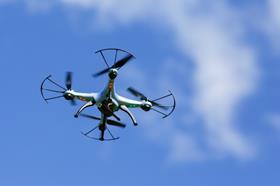
With agriculture being a profession that continues to adapt and reinvent itself with new technology, two University of Florida professors have predicted robots and information technology will dominate farms in the coming years.
University of Florida Institute of Food and Agricultural Sciences (UF/IFAS) professors Senthold Asseng and Frank Asche have co-written an article, published in the journal Science Robotics, in which they said “the farmers of the future are likely to be data scientists, programmers and robot wranglers'.
“I think we will see the first farm trying to put all this technology together in the next few years,” Asseng said.
Asseng and Asche have predicted fewer farmers will be needed, a trend that started more than a century ago. There were 12m people employed in agriculture in the US in 1900. In 2014, there were 2m, or 1.7 per cent of total American employment, according to Our World in Data, an organisation that monitors farm and land use.
Asseng works as a faculty member in agricultural and biological engineering and is a Fellow of the UF/IFAS Institute for Sustainable Food Systems (ISFS). Asche is a faculty member in the program on fisheries and aquatics in the UF/IFAS School of Forest Resources and Conservation, and is also affiliated with the ISFS.
In the face of global challenges to produce more food, more sustainably, the researchers have urged scientists and growers to radically rethink their approach to farming.
Farmers face constraints such as high labour costs, but at the same time dwindling land on which to grow crops as well as fresh water – both due to changing climate and population growth.
“We have already become accustomed to the idea of autonomous machinery, like tractors navigating their way up and down a field,” said Asseng.
More recent technological advances include robots and drones that can operate autonomously 24/7, collect large amounts of farm data and carry out tasks on the field.
The collected information could be used to optimise food production and resource use, the researchers said, resulting in higher yields with less fertiliser and pesticides.
Heavy machinery, used in place of higher labour costs, has compacted soil, leading to reduced root growth, lower soil fertility and eventually, less yield, the researchers noted. Replacing heavy machinery with autonomous lightweight robots and drones could overcome the soil compaction issue and make food production more sustainable.
Another advantage they cite from technological advances is food traceability.
“The constant monitoring and collection of information from sensors in the field or from sensors attached to livestock will make it possible to trace a food product from farm to fork,” the researchers wrote.
All the components of the future farm already exist, including decision software for crop management, said Asseng. As an example, he cites the Decision Support System for Agrotechnology Transfer (DSSAT), a software application programme of growth simulation models for more than 40 crops. Several UF/IFAS scientists conduct research for DSSAT.
Asseng sees all these innovations benefitting society, the way we farm and the environment – helping with increasing food production and increased sustainability.
“I think the trend is clearly there since agriculture started and more recently, for example, with bigger and bigger tractors in agriculture to have fewer drivers, a trend we also see in other industries,” he said. “It definitely opens up new opportunities for other jobs like developing and maintaining robots, drones, software and more.”



